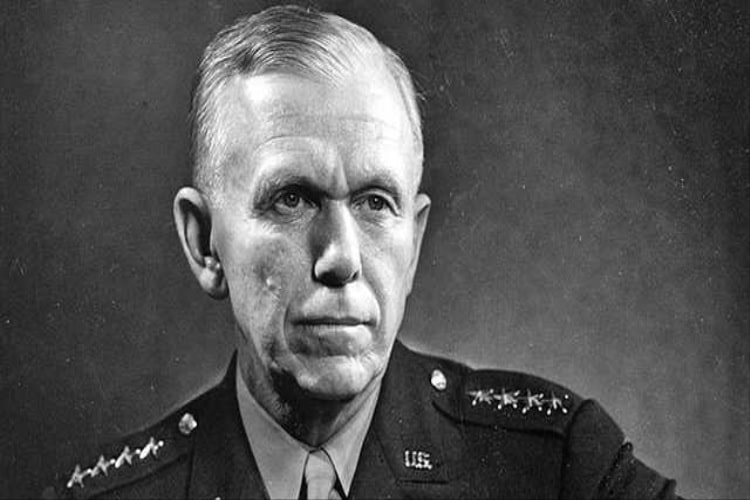From Soldier to Statesman: George C. Marshall’s Extraordinary Journey

George Marshall (31 December 1880 – 16 October 1959) was an American army officer and statesman. He was awarded the Nobel Peace Prize.
Life and Career
George Marshall was born on 31 December 1880, in Uniontown, Pennsylvania, United States. He attended the Virginia Military Institute (VMI) and graduated in 1901. Marshall had a distinguished military career, serving in various roles both in the United States and abroad.
He was an instructor at the U.S. Infantry and Cavalry School and later served in the Philippines. During World War I, he worked on the General Staff and played a key role in planning and executing the American Expeditionary Forces in Europe.
After the war, he continued to rise through the ranks, holding important positions. Marshall’s leadership during World War II was crucial. He served as the U.S. Army Chief of Staff from 1939 to 1945. He oversaw the rapid expansion of the U.S. Army, turning it into the world’s largest military force. Marshall was instrumental in shaping strategy for the Allied forces in Europe and the Pacific.
After the war, George Marshall served as the U.S. Secretary of State from 1947 to 1949. He is best known for the Marshall Plan, officially known as the European Recovery Program, which provided economic aid to help Europe rebuild after the devastation of World War II. Marshall retired from government service in 1949 but was recalled to serve as the U.S. Secretary of Defense during the Korean War (1950-1951).
George Marshall passed away on 16 October 1959, in Washington, D.C., United States.
Award and Legacy
George Marshall was awarded the Nobel Peace Prize for his role in creating and implementing the Marshall Plan. The plan provided essential economic assistance to post-World War II Europe, helping to rebuild war-torn nations and stimulate economic recovery. He received the Presidential Medal of Freedom with Distinction in 1946 for his outstanding leadership during World War II.
Marshall’s most enduring legacy is the Marshall Plan (officially the European Recovery Program). It laid the foundation for post-World War II economic recovery and cooperation in Europe, and its success is credited with preventing widespread economic and political instability in the war-ravaged continent. The Marshall Plan is often cited as one of the most successful foreign aid programs in history.
George Marshall’s military leadership during World War II was instrumental in the success of the Allied forces. He played a pivotal role in the planning, organization, and execution of the war, and his emphasis on logistics, supply, and coordination was vital to the war effort.
Several institutions and locations have been named in honor of George Marshall, including the Marshall Space Flight Center, the George C. Marshall European Center for Security Studies, and the George C. Marshall Foundation. These institutions continue to promote his legacy and principles.
Marshall’s diplomatic and strategic skills have had a lasting impact on U.S. foreign policy. His emphasis on the importance of diplomacy, economic aid, and international cooperation set the stage for American engagement in post-war Europe and the broader world.
George Marshall is remembered as a role model for military officers, diplomats, and public servants. His integrity, selflessness, and dedication to service continue to inspire future generations of leaders.
Observer Voice is the one stop site for National, International news, Sports, Editor’s Choice, Art/culture contents, Quotes and much more. We also cover historical contents. Historical contents includes World History, Indian History, and what happened today. The website also covers Entertainment across the India and World.
Follow Us on Twitter, Instagram, Facebook, & LinkedIn

